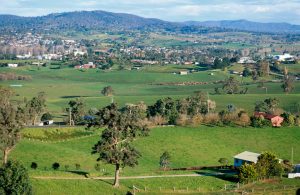By Ashleigh Bush
One of the enduring questions for farming families is simple: how do we keep the next generation connected to agriculture?
Across rural Australia, the trend has long been the same – many young people leave for study or work in the city, sometimes as early as high school, and too often they don’t return. Decades of farm expansion and consolidation have only reduced opportunities for careers on the land.
The result is a clear demographic shift. According to ABARES’ Trends in the Australian Agricultural Workforce (2016 census), the median age of farmers rose to 56 in 2016, up from 51 just five years earlier.
Why It Matters
Keeping young people on the land isn’t only about farm succession – it underpins the health of whole rural communities. School committees, sporting clubs, charities, and volunteer organisations rely on a steady flow of younger members with fresh ideas. Without them, farms and country towns alike face a “brain drain,” with fewer hands to keep things moving forward.
Signs of Change
The good news is agriculture today offers more than long days in the paddock. It’s increasingly about technology, innovation, and enterprise. From drones and data to direct-to-consumer food brands, new career paths are opening that didn’t exist a decade ago.
Pathways Back Home
- Education that fits: Ag colleges, TAFE, and university partnerships are building courses that combine study with real-world farm placements, making it easier to stay connected to the bush.
- Tech and ventures: Ag-tech, carbon farming, and entrepreneurial opportunities are drawing in young people who thrive on problem-solving.
- Community support: Mentorships, youth leadership programs, and strong local networks help young people feel valued and supported—often as important as the job itself.
The Bottom Line
If the next generation sees a future in agriculture that is rewarding, challenging, and supported, they’re far more likely to stay. With the right mix of opportunity, training, and community, farming families don’t just pass on land—they pass on a future worth coming home to.








